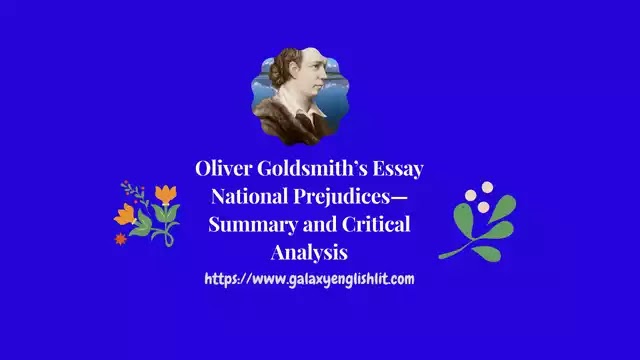A Little Glimpse of Humour in the Opening Scene of the Play:
Gonzalo, the old lord, provides a little humour in the opening scene. His comment on the boatswain is somewhat amusing. In the face of danger of the shipwreck, Gonzalo derives comfort from the boatswain who has ‘no drowning marks upon him’ and whose ‘complexion is perfect gallows’. Gonzalo prays to Fate to stand fast to the boatswain's hanging. A little later, when there is no hope of the ship surviving the storm, Gonzalo says that he would like to die a dry death and that he would gladly give a thousand furlongs of sea for an acre of barren ground.
 |
| Humour and Comic Elements in the Play The Tempest by Shakespeare |
The Three Drunken Persons’ Being the Source of Humour:
The three drunken persons namely Caliban, Stephano and Trinculo are the chief source of humour in the play. In the first place, it is amusing to find Trinculo mistaking Caliban for a fish and then for some islander struck dead by lightning. It is funny to see Trinculo taking shelter under Caliban's gabardine. Caliban's attitude of worship towards Stephano who has given him wine to drink and who appears him to be no less than a god is also humorous. The mutual contempt of Trinculo and Caliban for each other and their exchange of abusive remarks are also amusing. Amusing also is the manner in which Ariel creates misunderstanding first in the mind of Caliban and then in the mind of Stephano, by uttering certain words into their ears and making them think that those words have been spoken by Trinculo. Then drunken Stephano's imagining himself as the king of the island with Caliban and Trinculo as his viceroys , all three of them being led by Ariel's music into a filthy pond , Stephano's and Trinculo's trying to grab the deceptive frippery displayed by Prospero , all the three conspirator's being chased away by dogs and hounds all these are funny situations .
Humour Rising from the Dialogue Between Antonio and Sebastian:
In the beginning of Act II, Scene I, there is a piece of dialogue between Antonio and Sebastian, which is supposed to be humorous. In this dialogue the two speakers try to make fun of Gonzalo and Adrian. In a running commentary they mock, jeer and scoff at the two courtiers. But humour that we get in this dialogue is dull and boring. It fails to amuse.
Gonzalo's Speech about His Ideal Commonwealth:
In Act II, Scene I, Gonzalo talks of his ideal commonwealth. He says that if he had control of this island, he would have no kind of traffic or trade on it, no magistrates, no literature, no work no occupation, etc. It is believed that this speech is a kind of satire on the theories of socialists and communists.
Finally, it may be pointed out that there is practically no real wit in this play. We have some humour in some of the situations but even that appears to be farcical.





